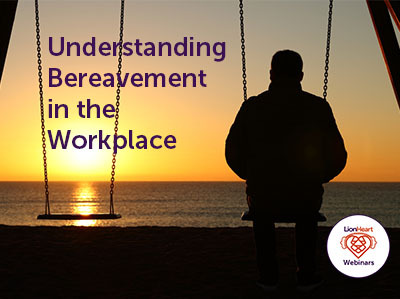Why talking about dying is so important

I still remember the moment my daughter woke from a deep sleep and told us she couldn't decide whether she wanted to be buried or cremated. Melissa was 20 years old and had been diagnosed with non-Hodgkin lymphoma eight months earlier. She was now end of life with just a few weeks to live.
It would have been easy to avoid the conversation, to brush it off as medication induced, but it wasn't.
She needed to tell us about her wishes and, after discussing the merits of burial v cremation, we moved on to where she wanted her ashes scattering, the music she wanted playing at her funeral and what she wanted people to wear to her farewell party.
It is a conversation that no parent should have with their child, but it was one of the richest discussions I've ever had.
It meant that in Mel's final weeks and on the day of her funeral, we knew we'd got everything spot on - because Mel had organised it all. A couple of weeks earlier our GP had similar conversations with Mel around resuscitation (DNACPR) and decisions around any treatment she may not want (ADRT).
At first, she stated that wanted to be resuscitated, but as her condition deteriorated, she changed her mind and it meant her wish to die at home with her family was carried out.
People agonise about 'getting it right'
It's one of the reasons why I champion conversations of this nature. So often I hear from people agonising over whether they 'got it right'.
Well, I can tell you, if you have the conversation and carry out your loved one's wishes, you always get it right. Sometimes it isn't easy. It can be upsetting. But it can also be light-hearted.
In the fifteen minutes or so it took to chat about Mel's wishes, we frowned, raised our eyebrows and we laughed and smiled, particularly when she told us she needed to choose a hymn at her funeral 'for the oldies' and the only one she could remember from school was All Things Bright and Beautiful, so that's what she chose.
Part of my role as Community Development Lead at St Giles Hospice now is to encourage these conversations within our communities.
Ultimately, it is always about choice and if someone doesn't feel able to have the discussion, be that patient or loved one, then that has to be respected. I present the reasons why I think it is good to have the discussion.
We often silence the people who want to discuss these matters for fear of upsetting those who don't want to talk, but as I said previously, it's all about choice and those who want to discuss their wishes should be given the space to do so.
Tell people what matters to you
Advance care planning is often left to the last minute and at that point a medical professional will tend to focus on resuscitation and decisions around refusing treatment.
I'd say that it is actually far better to start talking about these matters when you're fit and well. Telling people what matters to you gives you a greater chance of receiving the care you need, rather than the care someone thinks you need. Recording your care wishes makes so much sense. Your favourite food, musical tastes, TV likes and dislikes. What is important to you?
I have filled in my own care plan. I'm not ill, but I am all too aware that anything can happen at any time and with that in mind, I've written down what matters to me and my wishes.
I would always encourage people to have the conversation with their loved ones. In the Dying Matters terms, we say that it helps to put you all #InAGoodPlace at the end of life.
Don't wait until it's too late. Remember, you don't have to wait until you're at the end of your life to discuss what's important in your life!
Ian Leech is community development lead at St Giles Hospice in Lichfield. He delivers webinars on grief and bereavement for LionHeart which aim to support people's understanding of grief and bereavement, how it can affect someone and how individuals and workplaces can offer support.

Ian will be running his next session, Understanding Bereavement in the Workplace, on Tuesday May 3 during Dying Matters Week. To book your free space click here

